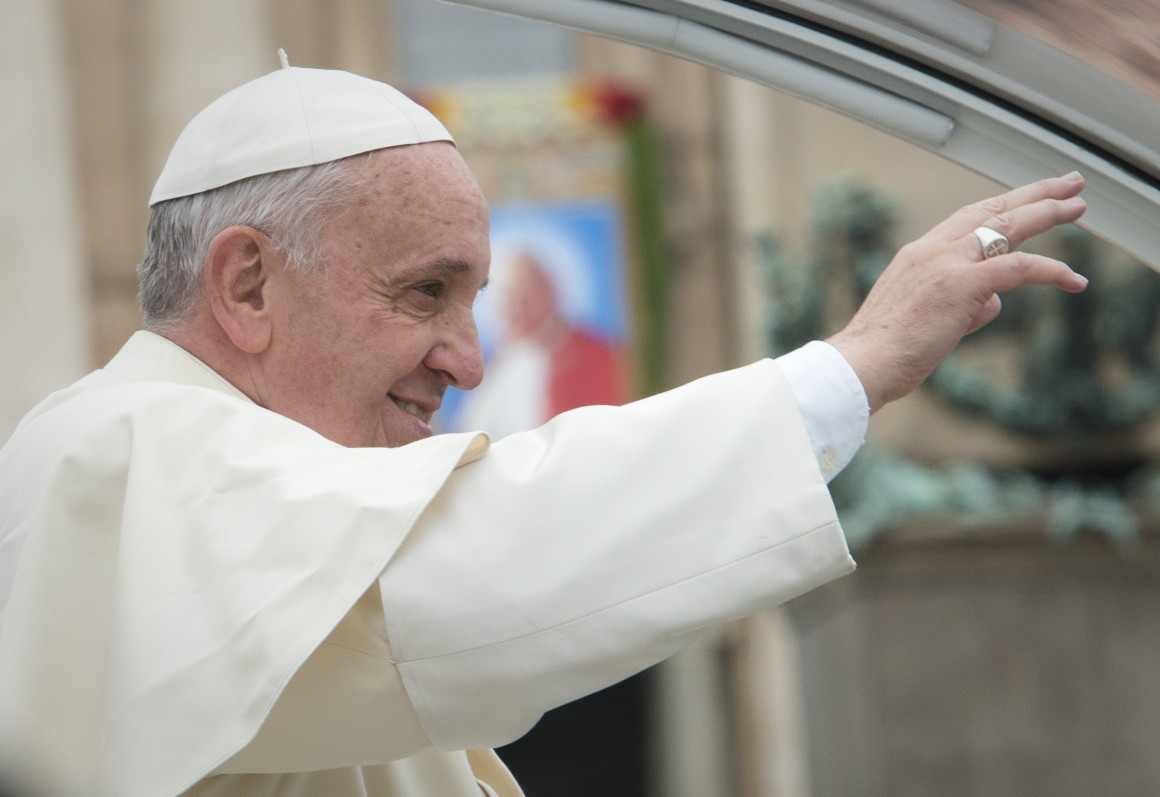Since his election as pope in March 2013, much attention has been given to Pope Francis’ commentary on public policy issues. His first visit outside of Rome was to the island of Lampedusa, off the coast of Italy, where he condemned global indifference to the plight of refugees, thousands of whom have died trying to reach the island. Later that year, in his apostolic letter, The Joy of the Gospel, he famously condemned “trickle down” economics as a failed experiment that left the poor poorer. Finally, in his recent encyclical on the environment, the pope affirmed science on climate change and questioned buying and selling carbon credits.
Soon Francis will visit the United States. In addition to celebrating large Masses for the Catholic faithful in Washington, New York, and Philadelphia, he will participate in explicitly political events. He will address a joint session of Congress (which no pope has done before) and the General Assembly of the United Nations. If he remains consistent with his style on other trips, Pope Francis will invoke lofty principles and also get very specific. He will make every elected official a little bit uncomfortable, for Pope Francis does not hesitate to challenge people on both the left and the right.
What Francis is doing is nothing new. In 1891, Pope Leo XIII issued the first of many social encyclicals, papal letters explaining how the gospel relates to social, economic, and political issues. In Leo’s case, he condemned inhumane working conditions and backed labor unions, beginning a long history of the Catholic Church’s relationship with unions. Leo upheld the right to private property but condemned unrestricted capitalism. Since Leo, popes have commented on a host of issues: human rights, disarmament, social welfare programs, abortion and euthanasia, immigration, same-sex marriage, torture, and military interventions, to name just a few. Local bishops have followed the popes’ lead by addressing particular issues in their country and region.
What Francis is doing is nothing new, but how he does it is. First, before acting, his tendency is to listen first, even permitting disagreements to emerge as a sign of healthy discernment. Moreover, his dramatic public gestures and his down-to-earth writing style grab people’s attention. The message lingers, and the controversy often follows.
One could ask what business the Church has commenting on public policy in the first place. Shouldn’t popes and bishops be talking about God, prayer and other “churchy” stuff? In response, Church leaders insist that they must address social, economic and political issues because anything that impacts the dignity of the human person is the Church’s concern. The Judeo-Christian tradition teaches that human beings are made in the image of God and thus enjoy a dignity that can never be violated and must be promoted. Moreover, Christianity teaches that God became human in Jesus Christ, affirming that dignity even more. Jesus did not retreat from the world but engaged it. Far from being simply a “waiting room” for heaven, the world is a place where God is at work and from Jesus’ time onward, Christians have tried to make the world a more just and gentle place, as God imagines it. Finally, and very practically, the Church as an international institution has extensive experience caring for people’s material and physical needs, for example, running systems of hospitals, schools, and social service agencies. The Church has much to teach governments and NGO’s about how to care for people. Francis insists that the Church has a right to participate in public policy debates. To exclude the voices of the Church and other religious communities is to impoverish those vital conversations.
For these reasons, Francis insists that the Church has a right to participate in public policy debates. To exclude the voices of the Church and other religious communities is to impoverish those vital conversations. At the same time, in forming its conclusions, Church leadership does well to listen to experts in the field and persons from different faith traditions. The Church recognizes the ancient virtue of prudence, a practical wisdom that helps a person apply principles to concrete situations in order to achieve the good. On some issues, particularly those defending human life – whether the unborn child, the infirmed person, or the civilian caught in war – the Church insists that certain actions taking a human life are always wrong. Other issues leave more room for prudential judgment. For example, while affordable housing and access to health care are human rights, the Church permits public officials to make necessary compromises at times and rely on their professional judgment to determine how best to achieve noble ends amid the complexities of competing interests. Francis is particularly adept at making sure that people who disagree with him are not isolated but engaged.
Pope Francis has something to teach all of us, whether Catholic or not. He speaks humbly, inviting dialog with people from different backgrounds. He speaks plainly as a pastor caring for his people, particularly those on the margins of society. On his visit to the United States, Francis will speak to all of us about the pressing issues of the day, enriching our national conversation long after he heads back home to Rome.
Father O'Brien is Vice President for Mission and Ministry at Georgetown University, where he coordinates the largest interfaith campus ministry in the country and directs programs in the Catholic and Jesuit tradition with faculty, students and alumni. A graduate of Georgetown University (C’88), he joined the Society of Jesus in 1996. Before joining the Jesuits, Fr. O'Brien practiced law and taught high school in south Florida where he grew up. As a Jesuit he has worked and lived in India, Mexico, and Bolivia, and served as a chaplain in an immigration detention center on the Arizona-Mexico border.
